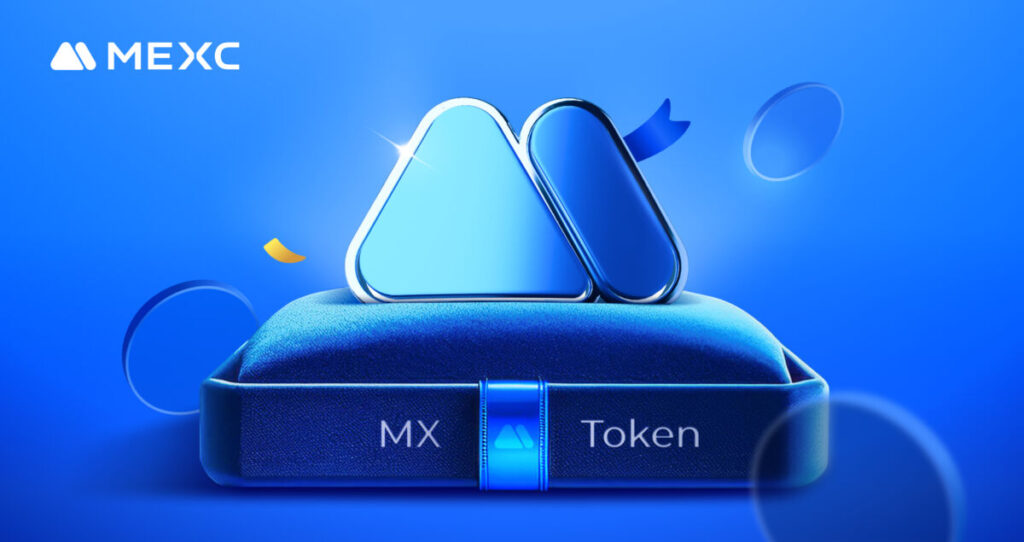
6 minute read
Is MEXC Legal in Spain? What You Need to Know
from MEXC
by Exness_India
If you're asking "Is MEXC legal in Spain?", the straightforward answer is: Yes, MEXC is legal for use in Spain, but with certain conditions and important considerations. This article will dive deep into the legality, regulatory environment, and practical aspects of using MEXC in Spain in 2025.

✅ Trade with MEXC now: Open An Account 👈
What is MEXC?
MEXC (formerly known as MXC Exchange) is a global cryptocurrency exchange platform offering a wide range of digital assets, futures, spot trading, and DeFi products. Since its launch, it has gained popularity worldwide due to its extensive asset listing, competitive fees, and user-friendly interface.
But before you dive into trading on MEXC in Spain, you need to understand the legal and regulatory landscape to avoid any potential issues.
Is MEXC Legal in Spain? The Direct Answer
Yes, MEXC is legal in Spain, but with caveats.
Spain does not ban or restrict its residents from accessing or using international cryptocurrency exchanges like MEXC. However, the Spanish regulatory framework places emphasis on compliance, consumer protection, and taxation of crypto assets.
Spain’s regulatory bodies do not currently block access to MEXC, nor has the platform been blacklisted. As of 2025, users in Spain can register, deposit, trade, and withdraw on MEXC without facing legal prohibitions.
However, legal operation doesn’t mean unrestricted freedom. Spanish authorities expect users and platforms to comply with anti-money laundering (AML) rules, know-your-customer (KYC) processes, and tax reporting obligations.
Spain’s Cryptocurrency Regulatory Landscape
Spain is part of the European Union, which means it aligns with many EU regulations related to cryptocurrency. The key regulations impacting exchanges like MEXC in Spain include:
1. AML and KYC Requirements
Spain’s anti-money laundering laws require cryptocurrency platforms to perform thorough KYC checks on their users. While MEXC is an international platform, it has implemented KYC protocols that align with global standards, which Spanish users must complete.
If you want to use MEXC legally in Spain, expect to provide identity verification documents. This is both for your security and compliance with Spanish and EU laws.
2. Registration with Spanish Authorities
Spain’s financial regulator, the CNMV (Comisión Nacional del Mercado de Valores), monitors crypto exchanges and platforms. While MEXC is not a Spanish company and may not be fully registered as a Spanish entity, it still must operate under EU regulations, including the Markets in Crypto Assets (MiCA) framework, which is set to be fully enforced soon.
Platforms like MEXC are expected to comply with MiCA once it becomes active, which will further formalize the legal status of crypto exchanges in Spain.
3. Taxation and Reporting
Spain treats cryptocurrencies as assets subject to capital gains tax. Residents using MEXC must report their profits from crypto trading in their annual tax returns. Failure to report can lead to penalties.
In short, MEXC users in Spain should keep detailed records of all trades, deposits, and withdrawals for tax purposes.
Can Spanish Residents Use MEXC Without Issues?
Yes, Spanish residents can use MEXC, but it’s crucial to follow these best practices to stay compliant:
Complete KYC verification: This ensures your account is verified and reduces the risk of account freezes or legal issues.
Stay updated on tax laws: Keep track of your trading gains and losses. Use tools or professional advice to accurately report crypto income.
Understand the risks: While MEXC is legal to use, it is not a regulated Spanish bank or financial institution. Cryptocurrency trading is inherently risky and not insured by the government.
Use secure practices: Enable two-factor authentication and avoid sharing sensitive information.

✅ Trade with MEXC now: Open An Account 👈
Are There Any Restrictions for MEXC Users in Spain?
While MEXC is accessible in Spain, some features might be restricted or limited compared to users in other countries:
Certain crypto derivatives or leverage trading may be limited due to Spanish and EU restrictions designed to protect retail investors.
Fiat currency deposits and withdrawals: MEXC primarily operates with cryptocurrencies, and Spanish users may face limited options for direct euro deposits or withdrawals on the platform. They often must use third-party services or exchanges to convert fiat to crypto before trading on MEXC.
Customer support: MEXC’s support might not be fully localized for Spanish residents, which can affect assistance quality.
How Does MEXC Compare to Spanish Crypto Exchanges?
Spain has several local crypto exchanges such as Bit2Me, Bitnovo, and Coinmotion, which are fully compliant with Spanish regulations and offer direct euro support.
However, MEXC offers advantages that attract Spanish traders:
Broader cryptocurrency selection: MEXC lists hundreds of coins and tokens, including many altcoins not available on local exchanges.
Lower trading fees: MEXC generally offers competitive fees compared to some local platforms.
Advanced trading features: Futures, margin trading, and DeFi products on MEXC appeal to experienced traders.
For casual or first-time traders in Spain, using a local exchange may offer simplicity and better fiat integration. But for active or international traders, MEXC provides more flexibility and choice.
Is It Safe to Use MEXC in Spain?
Legality does not guarantee safety. MEXC has implemented industry-standard security protocols such as cold wallets, encryption, and KYC verification to protect users.
Still, as with any crypto exchange, Spanish users should be cautious:
Never share private keys or sensitive info.
Use strong passwords and two-factor authentication.
Beware of phishing scams targeting crypto users.
Keep significant funds off exchanges by transferring to private wallets.
Will Spain’s Regulations Affect MEXC’s Operations in the Future?
Yes. The EU’s MiCA regulation, expected to be fully enforced by 2026, will create a more unified regulatory environment for crypto exchanges like MEXC across Spain and other EU countries.
MEXC may need to obtain specific licenses or enhance compliance measures to continue full operations legally in Spain.
For users, this means increased safety and transparency but possibly stricter onboarding processes and limitations.
Summary: What Should Spanish Users Know About MEXC’s Legality?
MEXC is currently legal and accessible in Spain.
Users must comply with AML/KYC verification requirements.
Trading profits on MEXC are taxable in Spain and must be reported.
Some features might be limited due to regulatory compliance.
Using local exchanges could be simpler for beginners, but MEXC offers broader options.
Follow security best practices to protect your assets.
Future EU regulations (MiCA) will affect MEXC’s Spanish operations soon.
Final Thoughts
If you’re a crypto enthusiast or trader in Spain wondering “Is MEXC legal in Spain?”, the answer is yes, with responsibility. MEXC provides a robust platform with a vast crypto offering, but users must follow Spanish laws regarding identification and taxation.
Always stay informed about evolving regulations, practice safe trading habits, and consider your own comfort with risk when using any international exchange like MEXC.
By understanding the legal landscape, you can confidently explore the opportunities MEXC offers while remaining fully compliant in Spain.
✅ Trade with MEXC now: Open An Account 👈
Read more:








